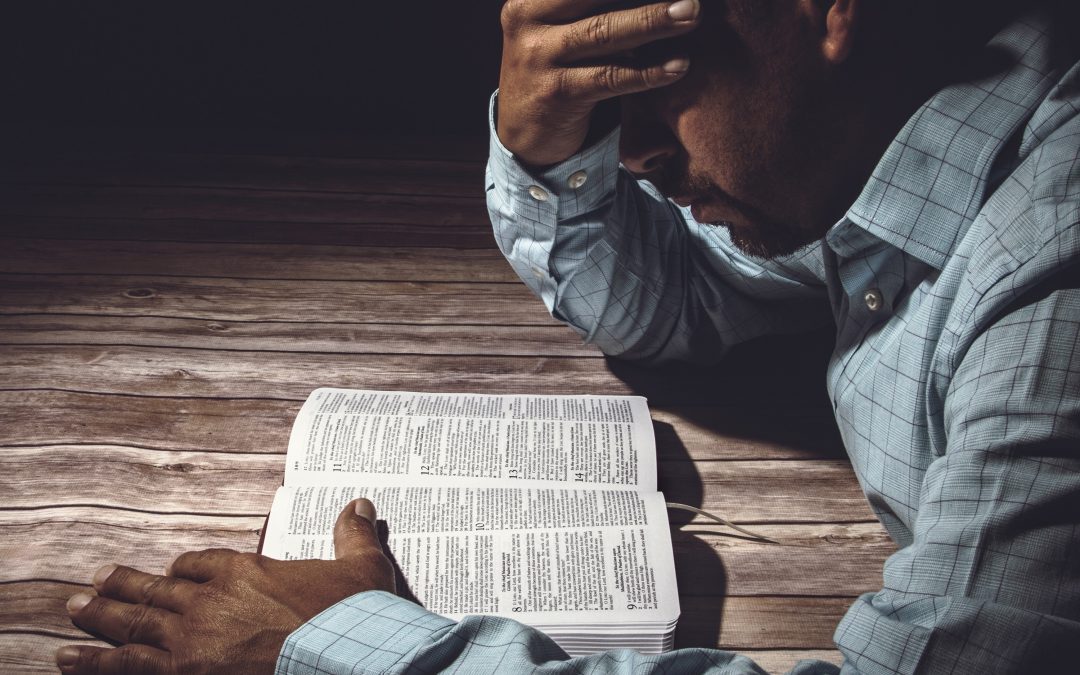The Lord Jesus Christ came to earth with a message from Heaven. At the very heart of His call was the call to change—change your heart. Many people argue over the essentiality of baptism for the remission of sins and it is essential, but so is repentance. Jesus said repentance is essential to salvation (Luke 13:3). One’s spiritual heart must be right before obedience can happen (Matt. 5:27-28; Luke 13:3; Matt. 19:16-26; John 8:10-11; Acts 17:30). Simply stated, repentance is a change of heart that results and is seen in a changed life. A turning from sin to the way of righteousness is repentance. Those who once acted like the world, spoke like the world, dressed like the world, and thought like the world must change to think and act like Jesus. “Dead to sin” records the apostle Paul in the epistle to the Romans (Rom. 6:1-7). Listed are some hinderances to a changing of heart, repentance, which ultimately are hinderances to obedience.
One very common hinderance is to blame others. This very thing happened in the Garden of Eden long ago (Gen. 3:12). Adam blamed the “woman” and the woman blamed the snake and the blame game accomplished nothing. Sin entered into the world (Rom. 5:12), and they were kicked out of the beautiful garden which God had prepared for them. Blaming others accomplishes nothing and hinders repentance.
Some seek to rationalize their sin. King Saul sought to rationalize his disobedience to God (I Sam. 15:15, 19, 22). It sounded good saving the best for sacrifice, but that was not what God said to do. To the average listener it likely was convincing, but not to God. Rationalizing sinful activity of your own or others can serve to blind one to sin (Mal. 3:8). Rationalizing wrongdoing has certainly been a hinderance to repentance through the ages.
“Preacher, that sermon sure did hit some folks who needed it, if only they were listening.” Applying God’s word to the other guy hinders repentance. Too many times the Gospel is deflected to another rather than self. This is a product of self-righteousness. The Pharisee and the publican who went up to the temple to pray exemplify the problem (Luke 18:10-12). According to the Lord the Pharisee could see fault in the publican but not in himself. While self-examination is difficult, it must be done to please God. Comparing ourselves with others is not proper self-examination, and is not wise (II Cor. 10:12). Many times this diversion is a defense mechanism to salve a guilty conscience; it is dishonest and will hinder repentance.
From times of old to new, willful ignorance has served to prevent repentance. The statement: “there is none so blind as those who refuse to see” comes directly from Bible principle (Jer. 5:21). The prophets of old contended with this problem as did the apostles of the New Testament (Acts 28:27). Ignorance is not bliss, and can lead to destruction. I once knew a woman who tried to handle excessive expenditures by refusing to open the bills that came later in the mail. It didn’t work! Willful ignorance will not excuse sin. It takes repentance.
Well-known football coach and commentator Lou Holtz said, “the man who complains about the way the ball bounces is likely the one who dropped it.” Excuses will get you nowhere, and will never erase sin (Matt. 25:24-27), but one thing it will do is hinder repentance which does erase sin (Jas. 5:20). God wants an honest spirit and a humble heart to serve Him (Psalm 51:17). Repent of sin and give your heart and life to Christ Jesus.
-David Hill, President of Tennessee Bible College


